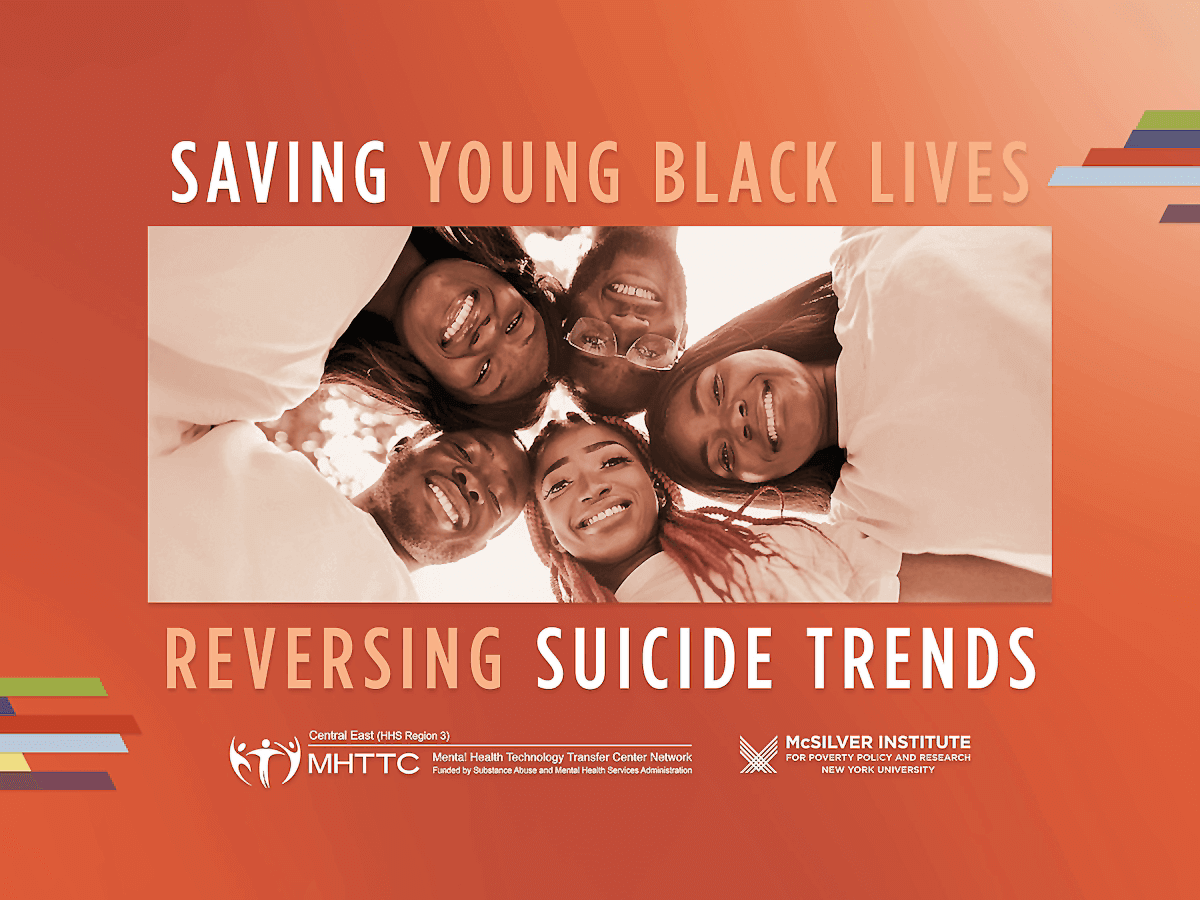Content Warning: Topics include suicide, depression and bullying.
Saving Young Black Lives: Reversing Suicide Trends features interviews with a survivor, parent affected by suicide, pro athlete and mental health experts
(September 16, 2021) — “The paramedic busted through the door and I screamed, ‘Please help my baby!’ At that time, with a 10-year-old and I’m saying he died by suicide, I wouldn’t have believed me either,” says Tami Charles, recounting the moments after she found her son Seven Bridges dead from suicide. His death in 2019 came amid an alarming rise of suicide deaths and attempts in Black children. Charles was interviewed for the new podcast series, Saving Young Black Lives: Reversing Suicide Trends along with survivor Mike Veny, NFL player Kenny Stills and several leading mental health researchers and practitioners. It launches during National Suicide Awareness Month.
Listen to the Episodes at mhttcnetwork.org
Dr. Michael A. Lindsey, Executive Director of the NYU McSilver Institute for Poverty Policy and Research, is hosting the series in partnership with the Central East Mental Health Technology Transfer Center (Central East MHTTC).
“This series covers research, policies and practices and recommendations to address a growing crisis for the mental health and safety of Black youth,” says Oscar Morgan, Project Director of Central East MHTTC. “We hope that behavioral health providers will consider incorporating these insights into their clinical practices, and also invite parents, teachers and members of the general public to take away information that can help save lives.”
“We have seen self-reported suicide attempt rates rising by 73 percent in Black adolescents between 1991 and 2017,” says Dr. Lindsey. “The pandemic has only hastened the urgency to act. We see this as a ring-the-alarm moment and want to make sure the public knows how to recognize the signs that a child or teen needs help, and knows what to do about it.”
The series also addresses the mental health pressures faced by youth who experience racism, social media bullying and violence in their communities. NFL free agent Kenny Stills discusses how the backlash to his social justice activism and taking a knee during the national anthem affected him. “I thought I was mentally tough enough to read all the comments and the Facebook messages and the Twitter mentions… You know just straight racism and bigotry to death threats… I caught a cloud other people call depression and knew I wanted to do something about how I felt and so that’s when I started… working with a therapist.”
About Central East MHTTC
The Central East Mental Health Technology Transfer Center (Central East MHTTC) is funded by the Substance Abuse and Mental Health Services Administration to strengthen the capacity of the behavioral health and primary care workforce that provides prevention, treatment, and recovery support services. For additional information, please visit mhttcnetwork.org/centers/central-east-mhttc.
About the McSilver Institute
The McSilver Institute for Poverty Policy and Research at New York University is committed to creating new knowledge about the root causes of poverty, developing evidence-based interventions to address its consequences, and rapidly translating research findings into action through policy and best practices. Each year it holds the McSilver Awards, recognizing extraordinary leaders transforming systems to tackle structural poverty and oppression. Learn more at mcsilver.nyu.edu and sign up for updates.

